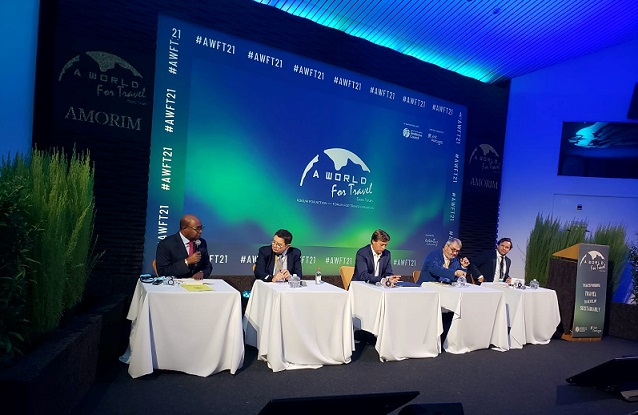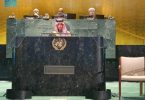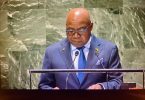Jamaica Tourism Minister, Hon. Edmund Bartlett, says the COVID-19 pandemic has underscored the importance for global tourism policymakers and industry leaders to activate a more proactive and decisive approach, to enhance the sector’s resilience.
“Overall, the pandemic has reminded tourism policy makers and industry leaders that they are equally crisis managers. This necessitates a posture that understands and accepts the imminence of various threats to the sector and the resultant need to activate a proactive approach to enhancing its readiness to meet the challenges of the present and future,” said Bartlett.
He suggested that this decisive leadership should be underscored by meaningful partnerships and synergies; data-driven policies; innovative thinking and adaptation and human capacity-building. Other considerations can include aggressive approaches to product diversification; the establishment of effective, real-time information systems; and a commitment to sustainable tourism development that balances multi-interests and future considerations whether economic, social, human, cultural and indeed, environmental.
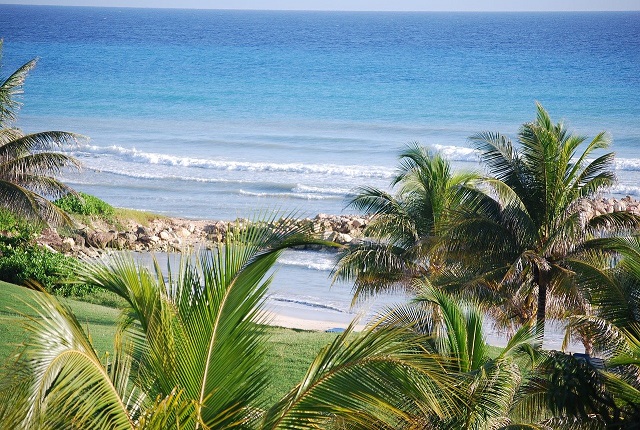
The Minister made these remarks during a panel discussion at the highly anticipated “A World for Travel – Évora Forum,” a global sustainable travel industry event, which began today in Évora, Portugal.
The panel discussion focused on the theme “COVID-19: A Resilient Sector Drives to a New Deal with New Leadership Demands,” and was moderated by Peter Greenberg, Travel Editor at CBS News. The session explored how governments and industry step up with leadership in a congruous manner allowing the sector to influence policy.
The Minister was joined by His Excellency Jean-Baptiste Lemoyne, Secretary of State for Tourism, France; His Excellency Fernando Valdès Verelst, Secretary of State for Tourism, Spain; and His Excellency Ghada Shalaby, Vice Minister of Tourism and Antiquities, Arab Republic of Egypt.
During his presentation Minister Bartlett also highlighted that the pandemic has underscored the importance for the tourism sector to establish a task force or an action committee that can be immediately activated at the onset of a crisis.
“This critical asset provides important advantages in crisis management experiences with respect to ensuring swift responses, targeted communication, balance of information between warning and assurance and general cross-sectorial cooperation and collaborations, which allows for the leveraging of diverse strengths, skills and resources to achieve common goals. As a result of strengthened relationships among stakeholders, the capacity to identify risks early and implement effective mitigation and recovery strategies is also likely to be enhanced,” said Bartlett.
The organizers have noted that the first edition of the “A World for Travel – Évora Forum” will focus on key components of the industry where change is mandatory, identifying the steps that need to be taken and consolidating solutions to be implemented.
The conference will approach themes intrinsic to sustainability such as economic model variations, climate impact, tourism’s environmental impact, coastal and marine shifts as well as agricultural and carbon neutral policies.
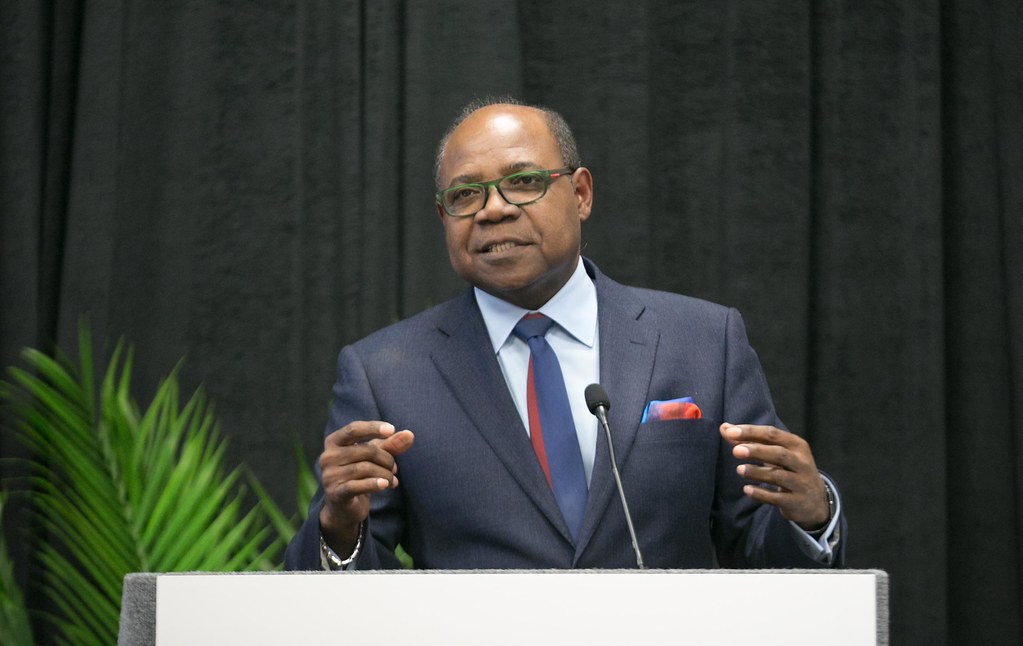
Hon. Edmund Bartlett’s comments in full:
“The enormous macroeconomic impact of the tourism industry in the Caribbean justifies its designation as one of the industries in the region that is now considered “too big to fail.” The WTTC has estimated that the “tourism economy” is about 2.5 times larger than the tourist sector in the Caribbean. Overall, the indirect and induced contributions of tourism to economic output in the Caribbean is estimated to be three times the world average and considerably higher than those of other regions. This data recognizes that tourism produces a multiplier effect through its many backward linkages with sectors including agriculture, food, beverages, construction, transport, creative industry, and other services. The tourism contributes 14.1% of total GDP (equivalent to US$58.4 bn) and 15.4% of total employment. In Jamaica the total contribution of the sector pre-COVID 19 was measured at JMD 653 billion or 28.2% of total GDP and 365,000 jobs or 29% of total employment.
“For the undiversified, tourism-dependent economies of the Caribbean, fast recovery from the current tourism crisis induced by the pandemic is indeed germane to regional macroeconomic stability. Thus, during this period of prolonged downturn and uncertainty, there has been a clear need for greater sharing of the risks and responsibilities associated with the management of the pandemic as well as the task of identifying and monitoring mitigation, resilience and recovery strategies, among all stakeholders inclusive of policymakers, industry leaders, hoteliers, cruise interests, communities, small businesses, tourism workers, health authorities, law enforcement etc. Indeed, of all the success factors that have been crucial to ensuring the survival and resilience of the tourism sector during this dark period, leadership and social capital have ranked highly.
“In the context of Jamaica, due to a combination of swift action, proactive leadership, effective communication and innovative thinking, we were able to quickly adapt and implement new health and safety protocols that guided the sector’s management of the pandemic in accordance with globally accepted standards. We also actively engaging all our stakeholders- travel agencies, cruise lines, hoteliers, booking agencies, marketing agencies, airlines etc. WTO, CTO CHTA etc. This was critical in ensuring that we continued to gain the confidence of the international community that the country was taking all the steps necessary to remain a safe and secure destination for all visitors.
“We also adopted a whole of society approach to the implementation and monitoring of protocols necessary for the effective management of the pandemic. For example, our five-point plan for the recovery of the tourism sector which includes developing robust health and safety protocols, increased training for all segments of the tourism sector, building safety and security infrastructure, and acquiring PPE and hygiene tools was designed and implemented based on a public-private sector partnership consisting of key stakeholders from the tourism sector, the Ministry of Tourism, and Agencies of the Ministry.
“Overall, the pandemic has reminded tourism policy makers and industry leaders that they are equally crisis managers. This necessitates a posture that understands and accepts the imminence of various threats to the sector and the resultant need to activate a proactive approach to enhancing its readiness to meet the challenges of the present and future. Therefore, the whole notion of crisis management has and will continue to require proactive, decisive leadership underscored by meaningful partnerships and synergies, data-driven policies, innovative thinking and adaptation, human capacity-building, aggressive approach.”
Media Contact:
GOT NEWS? click here
Google News, Bing News, Yahoo News, 200+ publications
Corporate Communications Division
Ministry of Tourism
64 Knutsford Boulevard
Kingston 5
Telephone: 920-4924,
Fax: 906-1729
Or
Kingsley Roberts
Senior Director, Corporate Communications
Ministry of Tourism
64 Knutsford Boulevard
Kingston 5
Tel: 920-4926-30, ext.: 5990
Cell: (876) 505-6118
Fax: 920-4944

